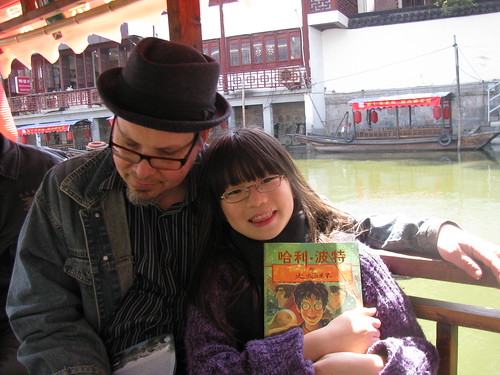Creo que mi amistad con Borges procede de una primera conversación, ocurrida en 1931 o 32, en el trayecto entre San Isidro y Buenos Aires. Borges era entonces uno de nuestros jóvenes escritores de mayor renombre y yo un muchacho con un libro publicado en secreto y otro con seudónimo. Ante una pregunta sobre mis autores preferidos, tomé la palabra y, desafiando la timidez, que me impedÃa mantener la sintaxis de una frase entera, emprendà el elogio de la prosa desvaÃda de un poetastro que dirigÃa la página literaria de un diario porteño. Quizá para renovar el aire, Borges amplió la pregunta:
—De acuerdo —concedió—, pero fuera de Fulano, ¿a quién admira, en este siglo o en cualquier otro?
—A Gabriel Miró, a AzorÃn, a James Joyce. —contesté.
¿Qué hacer con una respuesta asÃ? Por mi parte no era capaz de explicar qué me agradaba en los amplios frescos bÃblicos y aun eclesiástios de Miró, en los cuadritos de AzorÃn ni en la gárrula cascada de Joyce, apenas entendida, de la que levantaba, como irisado vapor, todo el prestigio de hermético, de lo extraño y de lo moderno. Borges dijo algo en el sentido de que sólo en escritores entregados al encanto de la palabra encuentran los jóvenes literatura en cantidad suficiente. Después, hablando de la admiración por Joyce, agregó:
—Claro, es una intención, un acto de fe, una promesa. La promesa de que les gustará —se referÃa a los jóvenes— cuando lo lean. |
|
I believe my friendship with Borges stems from our first conversation, which occurred in 1931 or 32, in transit between San Isidro and Buenos Aires. Borges was at that time one of our best-known young authors; I was a boy with one book published in secret and another one pseudonymously. Asked a question about my favorite authors, I took the floor and (defying the shyness which was making it difficult for me to get a coherent sentence out), set off on an unfocussed panegyric in praise of the poetaster who edited the literary supplement of a Buenos Aires newspaper. Perhaps to clear the air, Borges expanded his question: -- Certainly -- he admitted -- but outside of Fulano, whom do you admire, in this century or some other? -- Gabriel Miró, AzorÃn, James Joyce. -- I replied. What to do with such a response? For my own part, I would not have been able to explain what appealed to me in the cool, spacious, biblical -- even ecclesiastical -- works of Miró, in the rustic tomes of AzorÃn, nor in the garrulous cascade of Joyce -- even given, as I was taking for granted, like a rainbow in the air, all the prestige of the hermetic, the strange and modern. Borges said something to the effect that only in authors committed to the bewitching effect of the word do young people encounter literature in sufficient quantity. Later, speaking of my admiration for Joyce, he added: -- Clearly, it's an intention, an act of faith, a promise. The promise that they will like it -- referring here to young people -- when they read it.
|

